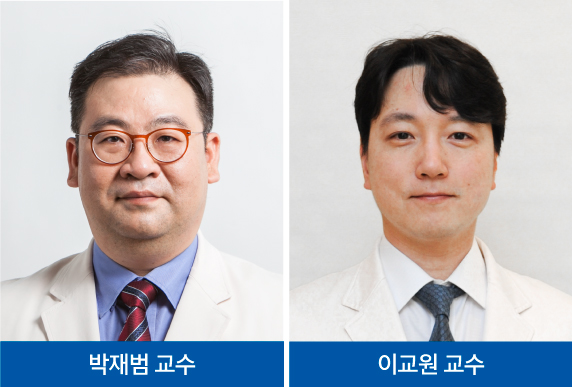Samsung Medical Center (SMC) researchers have developed a protocol that successfully induces immune tolerance while maintaining temporary mixed chimerism after simultaneously transplanting a kidney and bone marrow.

Recently, immunologic tolerance kidney transplantation, which maintains the stability of the kidney function without immunosuppressant, has received recognition worldwide as a way to improve survival and preserve the function of the transplanted kidneys. Temporary mixed chimerism is one of the immunologic tolerance methods used worldwide.
The method allows a temporary coexistence of the donor's and beneficiary's immune systems. Currently, only four transplant centers worldwide have reported successful immunologic tolerance kidney transplantations.
The SMC team, led by Professors Park Jae-beom and Lee Kyo-won at the hospital, reported findings from eight adult patients who underwent kidney transplantation after having chronic renal failure and had inconsistent primary tissue-compatible complexes, from December 2011 to December 2018.
Until now, the two existent protocols for bone marrow suppression before simultaneous transplantation of kidney and bone marrow required improvement in drug side effects and viral infections.
"When the team adjusted the protocol, it reduced existing risk," the team said. "Notably, the protocol consists of drugs that can only be used in Korea, which, in turn, has the advantage of allowing local medical workers to apply the new protocol immediately."
According to the research team, five out of eight patients successfully cut off immunosuppressive drugs, and four of them maintained healthy transplanted kidneys without taking medicine for up to 55 months. Notably, all three who applied the final protocol successfully discontinued immunosuppressants without complications.
Based on such findings, the team said that its protocol is most suitable as the primary method for local kidney and bone marrow transplant, and they will continue to research its protocol further.
This year, two patients participated in the study and underwent kidney and bone marrow transplantation, and one of them successfully reduced immunosuppressive drugs.
"Since the first immunologic tolerance kidney transplant in Korea in 2011, the protocol has been steadily improving," Professor Park said. "Through this achievement, we will continue to play a leading role in developing immunologic tolerance kidney transplantation as an ultimate treatment for end-stage renal failure patients."
The journal Transplantation published the result of the study.

